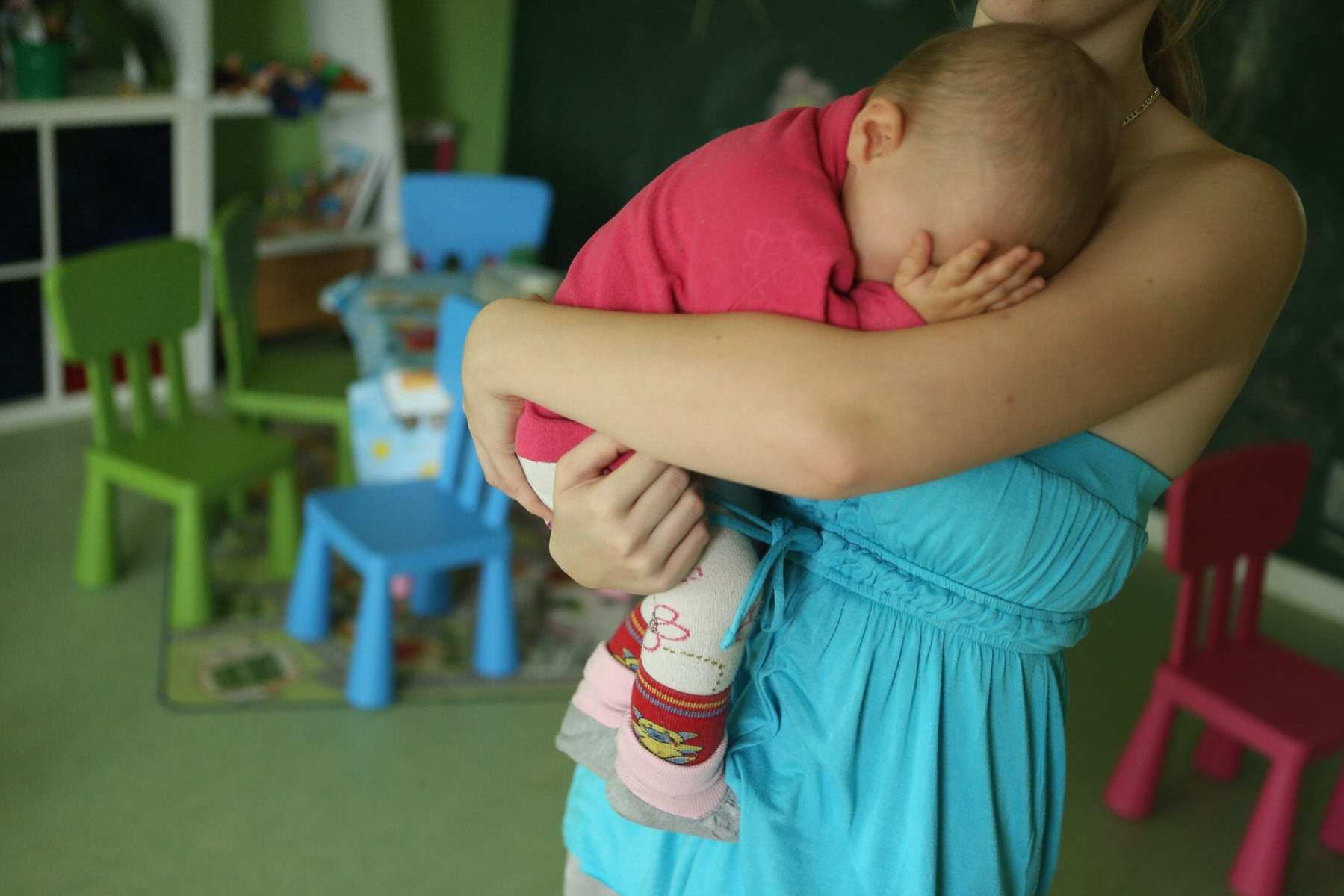In less than a month, most families with kids will be eligible to receive regular payments of up to $300 for each of their children. In the lead-up, the White House and community groups are launching a campaign to raise awareness for the most vulnerable families who are eligible for the money for the first time but will need to take extra steps to get it.
The funds will come in the form of the child tax credit, which was expanded in March for a year and amended so that families can receive the money in the form of monthly checks, instead of an annual lump sum. The amount available through the credit grew from $2,000 to $3,000 for kids ages 6 to 17 and $3,600 for kids under the age of 6. Monthly, that will come in payments of $250 or $300.
Crucially, the credit was also expanded so that the poorest Americans — people who don’t file income taxes — can get the full amount. That change alone has the potential of slicing child poverty in half, according to a study by the Center on Poverty and Social Policy at Columbia University.
Reaching those people is now the challenge ahead of the federal government.
Nearly 90 percent of families with kids — about 39 million households — don’t need to do anything to start receiving the money when the first payments go out on July 15. But those who don’t file income taxes, and therefore not known to the Internal Revenue Service, will need to apply through a new portal that was just created last week.
That’s why the White House is launching a Child Tax Credit Awareness Day on Monday, a “day of action” to help make families aware of the credit expansion and inform them of what they need to do to receive it.
Much of that work will be focused on reaching marginalized communities that would most benefit from the funds and getting them to sign up through the new portal, though community organizers anticipate significant barriers to that sign-up process: The portal isn’t available in a mobile version, for example, even though low-wage people are far more likely to own a smartphone than a computer.
“To have this not be as mobile friendly as possible — that’s unfortunate,” said Joanna Ain, associate director for policy at Prosperity Now, a nonprofit that works with community organizations that help people build assets and wealth. “Libraries are starting to open, but that’s not always available for folks.”
The day of awareness is sorely needed, Ain said, to help ensure as many eligible people as possible sign up for the money. How successful that outreach effort is will define the success of the expansion as a whole, particularly as conversations are ongoing on Capitol Hill about making the one-year change to the child tax credit permanent.
“These programs are so powerful because [for most people] you don’t need to sign up to get the child tax credit outside of doing your taxes,” she said. “Folks know what to do with the cash. They need food, they need clothing … [But] They don’t need barriers.”
For those who may be eligible for the funds, here is what you need to know, according to the IRS.
Who qualifies for the child tax credit?
Nearly all families with children who have a main home in the United States for at least six months qualify for some form of the child tax credit. People who don’t have permanent addresses also qualify. The White House estimates that 65 million children qualify for the benefit under its expanded form.
The poorest families will be able to access the full amount, including those who do not pay any income tax. Then, the amount families receive begins to decrease on a sliding scale. The phase outs begin for individuals who earn $75,000 a year, single parents who are heads of households who earn $112,500 a year and couples who earn $150,000 a year or more.
What constitutes a qualifying child?
A child qualifies for the credit if they are under the age of 18 before January 1, 2022. Stepchildren, foster children, half-siblings, grandchildren and other descendants qualify as long as a taxpayer claims them as a dependent.
To qualify, children have to live with their parents or guardian for at least six months, though there are some exceptions, including for kids of divorced or separated parents. They may be a U.S. citizen, U.S. national or U.S. resident alien.
Do undocumented people qualify for the money?
Undocumented people with children who have social security numbers qualify for the money on behalf of their children. The child must have had a social security number issued before May 17, 2021.
However, to sign up to receive the funds, undocumented parents or guardians must have Individual Taxpayer Identification Numbers, known as an ITIN. People can file a form W-7 Application for IRS Individual Taxpayer Identification Number to receive an ITIN.
If I paid income taxes or got stimulus checks, do I need to do anything?
No. Families who paid income taxes or received stimulus payments in the past year and a half do not need to do anything to receive the child tax credit.
Parents who don’t pay income taxes but already filed with the IRS to receive stimulus payments through its Economic Impact Payments portal during the pandemic also do not need to do anything — the IRS has their information from that sign-up process.
Families with kids will receive a Letter 6417 from the IRS this month that will inform them of the amount they will be receiving from the child tax credit.
If I did not pay income taxes, and don’t plan to file, how do I sign up for the credit?
If you did not pay income taxes in 2019 or 2020, and did not receive stimulus payments, you must sign up for the child tax credit by either filing your taxes for 2020 or through the IRS’ new portal here (https://www.freefilefillableforms.com/#/fd/childtaxcredit).
People who do not owe anything in income taxes can file their 2020 taxes past the May 17 deadline at no cost. Otherwise, they can go through the portal.
The portal is a simplified version of an income tax return and should only be used by people who don’t file taxes and aren’t required to, those earning less than $12,400 a year or $24,800 for a married couple.
What paperwork or information do I need to fill out the form on the portal?
You will need:
- A current mailing address, if you have one. The address does not have to be yours. It can belong to a family member, friend or trusted service provider.
- An email address
- A valid social security number or ITIN for you and valid social security number for the child or children you are claiming
- A bank account number and routing number, if you have one
- An Identity Protection Personal Identification Number (IP PIN) if you received one from the IRS earlier this year
Is this portal available in mobile form?
No. Although Intuit, which created the platform, told the Washington Post it can be viewed through a browser on a smartphone, the IRS specifically says it can only be opened on a desktop or laptop computer.
The form runs best on Google Chrome, Mozilla Firefox, Microsoft Edge and Safari.
In what form will I get the money?
If the IRS has your banking information because you included it in a tax return, through a previous sign-up process for stimulus checks or through a federal agency for benefits, you will get the funds through direct deposit.
If not, the payments will be sent by mail.
The dates when advance payments will arrive in 2021 are July 15, August 13, September 15, October 15, November 15 and December 15.
Will receiving the child tax credit affect what government benefits I’m eligible for?
No. The credit does not count as income and won’t determine what federal benefits you’re eligible for.
Are there organizations that can help me fill out the paperwork?
Yes. Many community organizations, homelessness organizations and legal aid services are helping people sign up through the portal or file their income taxes.
The IRS’ Volunteer Income Tax Assistance (VITA) sites, which offer free tax help, are remaining open in some communities to help people sign up through the new portal. To find a VITA site near you visit https://irs.treasury.gov/freetaxprep/.
What do I do if I want to change the information the IRS has on me?
A separate portal will be made available soon for families who want to update their information, including their address, bank information, changes in income or marital status, or changes in the number of children they claim.
Through this portal, families will also be able to choose if they want their child tax credit funds to come monthly or annually in one lump sum.
That portal, which is not yet available, is expected to be online before July 15.
How long will the expanded child tax credit be in place?
For now, the expansion is for one year.
The Biden administration has proposed expanding the credit to 2025. After that date, the past two expansions of the child tax credit will also expire and the amount available will revert back to $1,000 per child.
Other groups, including a group of Democratic members of Congress who have been advocating for this expansion for years, are pushing to make it fully permanent.








